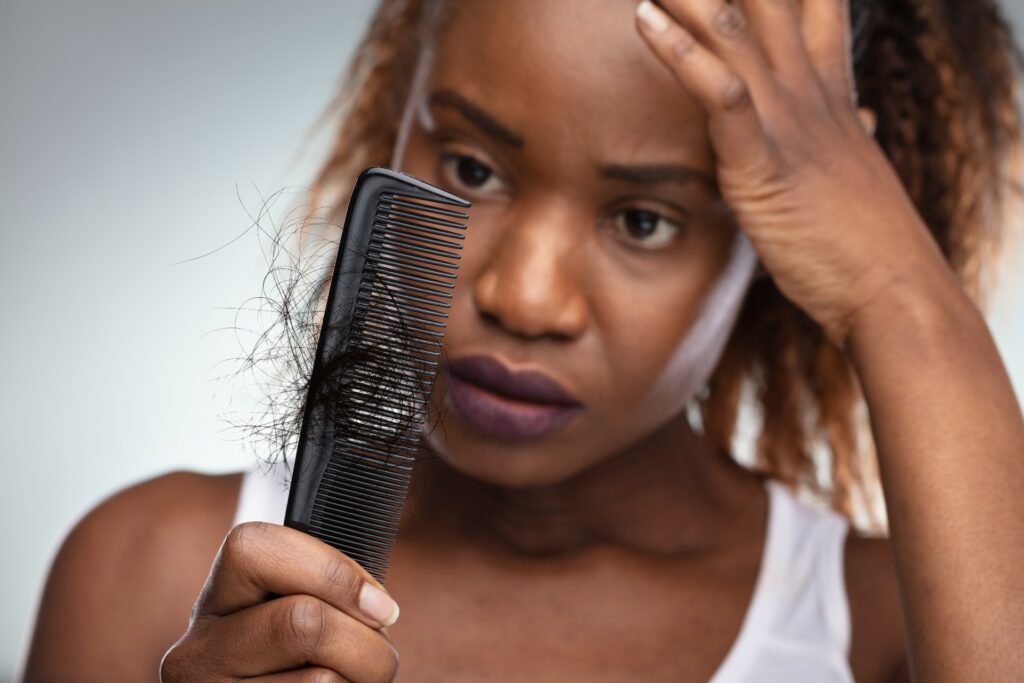Dermatologists Help Hair Loss Clients

Although it is not as well-known that dermatologists also specialize in nail and hair health, their education and training equip them to diagnose conditions related to skin, hair, and nails. There are many possible culprits contributing to hair loss, and more people accept it without knowing there are genuine solutions. Initially, people may buy products off the shelf that claim to restore lost or thinning hair or take supplements that claim the same. Others choose to hide a problem with hats, wigs, or combovers. A licensed dermatologist is the key to effectively mitigating hair loss because of the ability to find out the cause, address concerns and provide solutions to achieve the desired regrowth and hair health. In many cases, dermatologists can successfully treat hair loss and get to the root of a problem.
Taking Care of Fragile Hair
Washing and Moisturizing Hair During Loss
If you do any research online, when hair loss occurs, it is recommended to reduce the number of shampoos and use milder products. However, these efforts have minimal results because they do not get to the root of what is causing the hair to come out. Thinning hair is fragile, so it is often advised to wash less, condition, and minimize further damage. Dermatologists will suggest that clients experiencing hair loss use gentler hair products for cleaning and quality moisture products which can help minimize breaking hair. A licensed professional in skincare will closely examine your scalp and hair to suggest products that work well. Another recommendation is microfiber towels which help dry hair, so blow drying is less necessary.
What to Avoid During Hair Loss
There are some things to avoid or minimize if you notice increased hair loss. Although designed to add moisture to the hair, hot oil treatments can cause damage. Any heat will damage hair. Coloring, perming, and straightening should be avoided if possible or done by a professional.
Any styling tools work with heat, so using these only for a special occasion can help keep the hair healthier. If you usually style your hair daily with heat, it may be time to re-assess your haircare routine if you are experiencing hair loss. Using a low blow dryer setting and towel drying ahead can save time and stress on the hair. Avoid tight ponytails that pull your hair because it can cause traction alopecia. Anything that pulls your hair entirely out may be permanent, so explore new styles that don’t require pulling the hair. Smoking can also inflame the body, which can worsen hair loss and cause other serious health issues.
What Causes Hair Loss
There are many reasons that hair loss and thinning occur. The body’s lack of nutrients, especially protein or iron, can lead to more significant hair loss. Extreme dieting can also affect hair loss because of low caloric intake. Supplements are a hot topic right now, and many people grab the first recommended vitamin off the shelf for their hair symptoms. The risk of this is that it could get worse without knowing what is causing the hair loss and thinning. Only blood tests can give an accurate indication of what the body has an excess of or is lacking that may be causing hair loss. A professional dermatologist can provide a tailored treatment plan using the best supplements if that appears to be one of the causes.
Sudden Hair Loss
There are times when hair may regrow on its own, and it is most often when hair loss is sudden and a result of one of these reasons: after having a baby, following a surgery or illness, undergoing cancer treatments, significant weight loss, or a weakened immune system. In some cases, hair loss is your body’s natural reaction to one of these “traumatic” experiences and may grow back on its own, although it may change texture or color slightly. A thorough examination of hair and nails may show signs of regrowth not visible without dermatology tools necessary to see on a microscopic level.
How Can a Dermatologist Help?
Dermatologists gather information, examine hair and nails, and work alongside clients to find the problem and offer solutions. Your first appointment should be a conversation as history and other information is necessary to make a complete diagnosis. They’ll want to know some things, like if your hair loss is sudden or has been increasing over time. They will also identify areas where the hair loss is most significant and test the hair. If disease, a deficiency, or an infection may be causing hair loss, a board-certified professional will offer further testing.
If you have concerns about hair loss, visit a local and board-certified dermatologist with experience helping clients in this area. Whether you have accepted hair loss as a natural occurrence or are experiencing sudden loss, a professional can help do a proper assessment, help diagnose the root problem and suggest effective treatment plans. Atlanta Dermatologist, Dr. Sherrie-Ann Straughn, has been helping clients for over 25 years.
